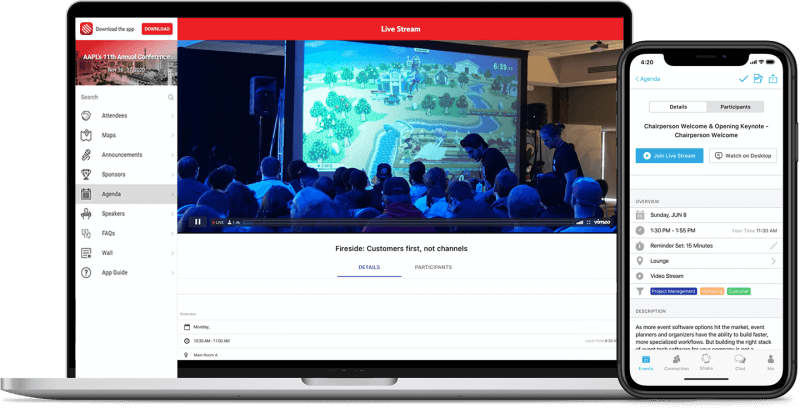Opportunity Zones can be a complicated subject for beginner and expert alike.
Opportunity Zones—sometimes referred to as OZs—are a hot topic with real estate and investment professionals. They’re a popular discussion for good reason. If you are an investor in the right situation, these zones (and funds) offer some very advantageous tax benefits. While one article won’t make you an expert on this complicated subject, this one will help break down the topic into understandable bits so you can easily explain what happens to your money when you invest in an Opportunity Zone.
Program
To encourage development in low-income communities throughout the U.S., approximately 8,700 Opportunity Zones were created as part of the 2017 Tax Cuts & Jobs Act. In a 2018 article on Forbes.com, writer Steven Bertoni described the event as this: “An unlikely group of billionaires and politicians quietly inserted a generous new tax break designed to lure big dollars into areas known as Opportunity Zones.”
But how do investments in these zones and funds actually work?
Benefits
When an investor sells a property (stock, business, etc.) and that sale results in an increase in capital for the investor, those proceeds are called capital gains (CG). Perhaps you have recently acquired this type of income and are wondering if reinvesting those monies in an Opportunity Zone Qualified Fund, a collection of money used for rehabilitating properties located in these lower income communities (OZQF), or a property located in an Opportunity Zone, might be the right opportunity for you.
Lower your tax liability // There are major tax benefits to be realized from reinvesting your earnings into one of these zones or funds—but only if you’re in it for the long game. Opportunity Funds were set up for long-term holds. Tax benefits won’t begin for five years after your initial investment in a qualified property (or fund).
Tax basis step-ups // As long as you don’t sell or exchange your share in the OZQF—that is, you don’t remove your original investment—up to 15% of the original gains invested will still be tax deferrable when finally claimed, along with any accrued interest. Depending on the size of your project, the tax benefits alone could add up to a sizable savings.
Invest outside of OZs too // If your money is being deployed through an OZQF, 90% of the money in that fund must be invested in properties located in Opportunity Zones. However, the remaining 10% of the fund’s total can still be allocated for investments in non-Opportunity Zone properties and endeavors. Examples could include investments in a new business, the acquisition of an existing business, or the expansion of an existing business or businesses. These opportunities qualify as well.
Sound good so far? Let‘s examine some additional requirements, such as important time limits for reinvestment, which will ultimately determine whether you profit from or lose out on this opportunity.
Requirements
180 days // Whether you choose an Opportunity Zone Qualified Fund, or a property within an approved zone, you’ll have no more than 180 days to choose where to reinvest your gains.
Go “all in” // While your initial investment can be held back for other purposes, all your capital gains must be reinvested in order to qualify. For example, if you realized $20,000 in profit on Sept. 1, 2019, you must reinvest all $20,000 in a qualified fund within the 180 days mentioned above, or no later than Feb. 1, 2020.
Substantial improvement of the property // 100% of the purchase price must be invested into the renovation and development within 30 months of the acquisition. For example, if you buy a property for $1,000,000, you must invest another $1,000,000 into improvements in the first two and a half years. Although an existing structure can be purchased and renovated, for the most part, investors/funds taking advantage of Opportunity Zone investments will be seeking “shovel ready” land that they will build out and hold, and then sell in five, seven or 10 or more years.
Examples
So, when might investing in an Opportunity Zone, or an Opportunity Fund, make the most sense for you as an investor? If you’ve realized capital gains in the past six months (or expect to in the future) and fall into one of the following two categories:
- You’re an investor who is willing to purchase, renovate and hold a property located in one of the designated census tracts for as long as 10 years before declaring your gains. If this is you, an Opportunity Zone property might be a good fit.
- You prefer a more passive investment role but are still comfortable leaving your gains to accrue (or not accrue) over the long term. If this sounds more up your alley, an Opportunity Zone Qualified Fund investment may be the better option for you.
Either way, if you’d like to explore a few real world examples, check out www.OpportunityDb.com for some good ones.
A Few Precautions
Little to no historical data // Available information on past projects may be minimal due to several factors. Opportunity Zones are too new to have recordable data from which trends can be derived. Many of the homes or buildings selected by funds may still be in the construction or remodeling phase—if the project has been identified at all. Although there has been a lot of buzz surrounding the program, and hundreds of millions of dollars have been raised by Opportunity Funds, most of these funds are still in the process of discovering projects and deploying the capital.
Strict setup and accounting requirements // While a passive, long-term investment role with deferred taxes on gains may sound idyllic, there are stringent requirements for the set up and ongoing accounting. Depending on the size of an individual deal, these legal and accounting expenses may be cost prohibitive or a major drag on returns.
Additional guidelines to come // Something else investors will want to be mindful of are changing IRS guidelines. Clarification on existing tax laws/regulations were recently released, with more anticipated in the future. What this means is that some of what we have learned and the guidelines that are in place now may be subject to change.
Due diligence // Although an excellent opportunity for the right investor in the right situation, we are by no means advocating investment in Opportunity Zones without encouraging everyone to do their own research on the topic. We believe it would be unwise to consider investing in a property or project merely for the tax benefit, or solely because it is located in an Opportunity Zone. All development projects should be vetted and underwritten the same, regardless of location, with importance placed on whether the real estate project has enough value and viability to stand on its own. Projects should only be developed if the numbers work without considering the tax benefits.
From 35,000 feet or down in the trenches, Opportunity Zones can be a complicated subject for beginner and expert alike. Remember that Opportunity Zones and funds are still a new concept, with more guidance and clarification to come. While there are risks—as there are with any investment—there are countless projects to be found when investing your money in real estate. Always consult with an expert (your attorney, a certified public accountant, or other professional) to get more information. After doing your due diligence, if you find investing in these funds is not for you, perhaps you can still speak intelligently about the subject next time you are at a cocktail party and the topic is discussed.












Leave A Comment